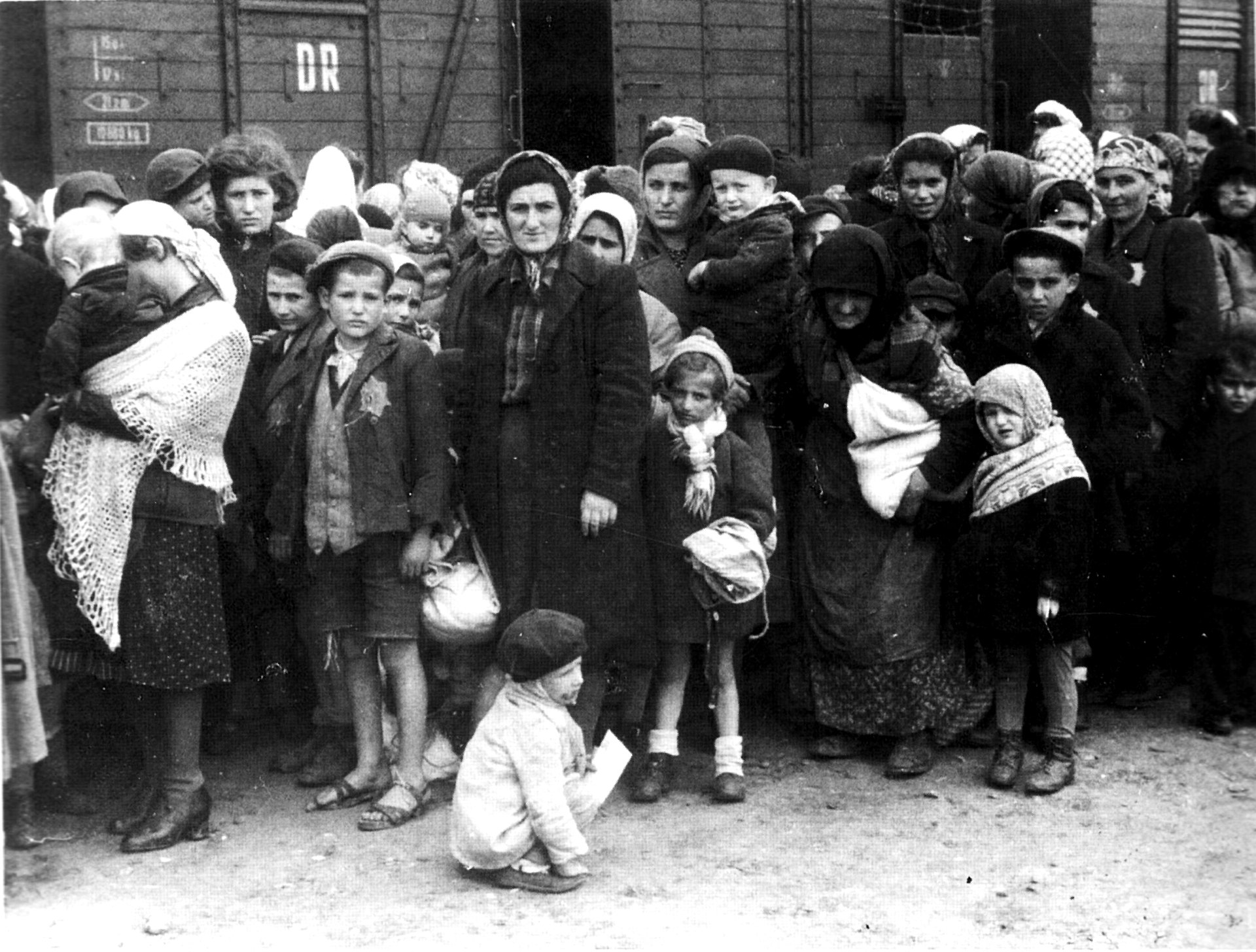
About the Commemoration
Yom Hashoah/יום השואה (or Yom HaShoah), the remembrance Day of the Holocaust, is observed by the Jews on the 27th of the lunar month Nisan, the anniversary of the uprising in the Warsaw Ghetto. The date, after the celebration of Passover but within the time of the Warsaw Uprising and also the anniversary of the liberation of the death camp at Buchenwald (27 Nisan 5705 = 10 April 1945), was set aside by the Israeli Knesset on April 12, 1951, as a day of mourning for the victims of the Holocaust. The Lutheran Book of Worship (p. 39) notes the desirability of the observance of the day by Christians as well as Jews. On the Gregorian calendar in common use, 27 Nisan falls in the latter part of April or early May. It may be necessary for Christians to move the observance to a later date when it falls during Easter Week. Lesser Feasts and Fasts 2006 of the Episcopal Church has added, on April 24, Genocide Remembrance Day.
Excerpts from New Book of Festivals & Commemorations: A Proposed Common Calendar of Saints by Philip H. Pfatteicher, copyright, 2008 by Fortress Press, an imprint of Augsburg Fortress.
See also: Yom HaShoah; Holocaust memorial days; Warsaw Ghetto Uprising; The Holocaust
Reading
From an essay by Elie Wiesel
I admit it sadly: I feel threatened. For the first time in many years I feel that I am in danger. For the first time in my adult life I am afraid that the nightmare may start all over again, or that it has never ended, that since 1945 we have lived in parenthesis. Now they are closed.
Could the Holocaust happen again? Over the years I have often put the question to my young students. And they, consistently, have answered yes, while I said no. I saw it as a unique event that would remain unique. I believed that if mankind had learned anything from it, it was that hate and murder reach beyond the direct participants; he who begins by killing others, in the end, will kill his own. Without Auschwitz, Hiroshima would not have been possible. The murder of one people inevitably leads to that of mankind.
In my naïveté I thought, especially in the immediate postwar period, Jews would never again be singled out, handed over to the executioner. That anti-Semitism had received its deathblow long ago, under the fiery skies of Poland. I was somehow convinced that—paradoxically—man would be shielded, protected by the awesome mystery of the Event.
I was wrong. What happened once, could happen again. Perhaps I am exaggerating. Perhaps I am oversensitive. But then I belong to a traumatized generation. We have learned to take threats more seriously than promises.
…I have chosen until now to place the Holocaust on a mystical or ontological level, one that defies language and transcends imagination. I have quarreled with friends who built entire theories and doctrines on an event which, in my view, is not to be used or approached casually. If I speak of it now, it is only because of my realization that Jewish survival is being called into question.
Hence the fear in me. All of a sudden, I am too much reminded of past experiences. The enemy growing more and more powerful, more and more popular. The aggressiveness of the blackmailers, the permissiveness of some leaders and the total submissiveness of others. The overt threats. The complacency and indifference of bystanders. I feel as my father must have felt when he was my age.
Not that I foresee the possibility of Jews being massacred in the cities of America or in the forests of Europe. Death-factories will not be built again. But there is a certain climate, a certain mood in the making. As far as the Jewish people are concerned, the world has remained unchanged: as indifferent to our fate as to its own.
And so I look at my young students and tremble for their future; I set myself at their age surrounded by ruins. What am I to tell them?
I would like to be able to tell them that in spit of endless disillusionments one must maintain faith in man and in mankind; that one must never lost heart. I would like to tell them that, notwithstanding the official discourses and policies, our people does have friends and allies and reasons to advocate hope. But I have never lied to them, I am not going to begin now. And yet….
Despair is no solution, I know that. What is the solution? Hitler had one. And he tried it while a civilized world kept silent.
I remember. And I am afraid.
Elie Wiesel, “Ominous Signs and Unspeakable Thoughts,” The New York Times, December 28, 1974. © 1974 by the New York Times Company. Reprinted by permission.
Propers
Almighty God, in penitence we come before you, acknowledging the sin that is within us. We share the guilt of those who, bearing the name Christian, slay their fellow human beings because of race or faith or nation. Whether killing or standing silent while others kill, we crucify our Lord anew. Forgive us and change us by your love, that your Word of hope may be heard clearly throughout the world; through your Son, Jesus Christ our Lord.
LBW, ELW
Readings: Nehemiah 1:4-11a; Psalm 6; 1 John 1:5-2:2; Luke 15:11-32
Hymn of the Day: “When in the hour of deepest need” (LBW 303, LSB 615)
Prayers: For a remembrance of the Holocaust so that it will never happen again; For the Jewish people that they remain faithful to the ancient covenant and learn of the new covenant; For tolerance and understanding; For an appreciation of the rich fabric of human society.
Preface: Lent (LBW/ELW) or Weekdays
Color: Violet
